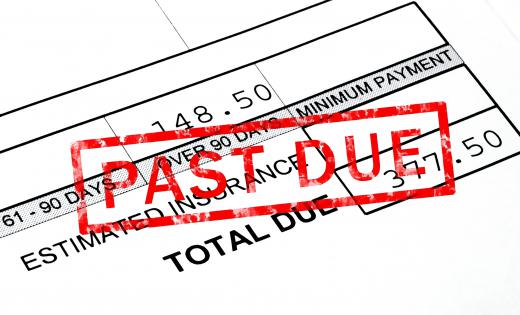Third party debt collectors are also referred to as collection agencies, and they are hired by credit companies and other businesses to collect payment on debts that have become significantly past due. Sometimes, the borrower will still owe money to the original creditor, while other times the collection agency will actually purchase the account, and the borrower will owe money directly to them. These debt collectors will employ a number of different methods in order to attempt to collect.
Once a credit account becomes past due, the account will often be sold to a collection agency or the agency will simply be retained by the creditor to collect on the account. The debt collectors will then begin attempts to try to collect the funds. They will usually send letters in the mail and place numerous phone calls in an attempt to get the borrower to pay. There are laws governing the amount and types of phone calls that debt collectors can make, however.

For instance, in the US, it is unlawful for third party debt collectors to call before 8 a.m. or after 9 p.m., or to behave abusively or in a threatening or harassing manner on the phone. They may not contact friends, family members, or coworkers except to obtain a phone number or place of residence for the debtor. They may not share information about the debt owed, or report it to any other credit agency. Debt collectors do not always follow these rules, and it is up to the debtor to report the company to authorities.

These third party debt collectors exist because credit companies often do not have the time or resources to deal with numerous delinquent accounts. It often works out in the credit companies' favor to have a third party handle the collections process, because they are more likely to get results and collect the funds that are owed, saving time and money for the credit company. This is often true even if the debt collectors are authorized to settle the account for a smaller percentage of the money that is owed.
